The views expressed in our content reflect individual perspectives and do not represent the authoritative views of the Baha'i Faith.
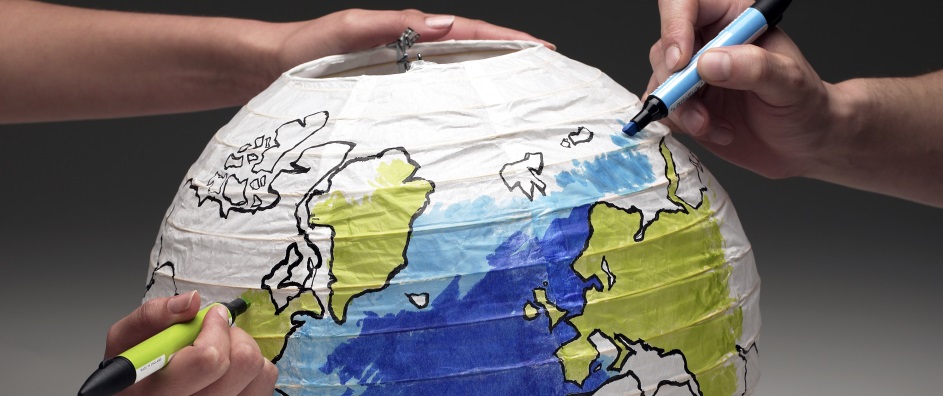 [Editor’s Note: This is the final installment of a three-part essay. Click here to read from the beginning.]
[Editor’s Note: This is the final installment of a three-part essay. Click here to read from the beginning.]
It all begins, I told my friend who asked about God and imperfection, when you come to terms with that magnificent premise, that great hypothesis — the existence of God, the Creator.
Any avenue of knowing can lead us there. For most people, though, it takes a kind of knowing that goes beyond the singular avenue of feeling, reasoning, and longing. In a magnificent little book entitled Tacit Knowing, author Michael Polanyi makes the point that most of what we know is ineffable. In other words, we know much more than we can say or describe. This ineffable knowing reaches through and embodies every aspect of our being, of who we are. Some of us know through our hearts; others through study and logic; a third group through the absorption of tradition and culture; and there are those who are spoken to in dreams, through instincts, through intuition, and even through a spiritually cataclysmic connection with the Supreme Concourse, as in what happened to Paul on the symbolic road to Damascus.
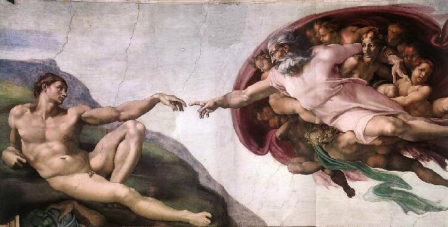 On the ceiling of the Sistine Chapel Michelangelo painted his famous picture of God and man reaching towards each other, a small space separating each one’s outstretched fingers. I think that magnificent painting symbolizes the dynamics of the unique relationship between God and man, and the inevitable separation brought about by the boundary conditions inherent to the human ontological level. God leaves it up to us – we can bridge that boundary through an act of faith, the ultimate divine hypothesis, if we choose to. God, however, asks that we make the first move.
On the ceiling of the Sistine Chapel Michelangelo painted his famous picture of God and man reaching towards each other, a small space separating each one’s outstretched fingers. I think that magnificent painting symbolizes the dynamics of the unique relationship between God and man, and the inevitable separation brought about by the boundary conditions inherent to the human ontological level. God leaves it up to us – we can bridge that boundary through an act of faith, the ultimate divine hypothesis, if we choose to. God, however, asks that we make the first move.
After all, this is His creation. Therein lays the hope for mankind. In this new Baha’i revelation, God asks again that we turn our hearts toward the Divine:
Love me that I may love thee. If thou lovest me not, My love in no wise can reach thee. Know this O servant. – Baha’u’llah, The Hidden Words, p. 4.
Our choice involves wanting to bridge that gap. To do so we must do it on God’s terms, not our own. When God gives humanity the potential for reflecting His Divine attributes, a process that necessarily involves a conscious choice on man’s part, He also builds within us the possibility and the resources to move through the stages of our spiritual development.
I told my friend that he could view this either as a flaw on God’s part in how He has organized things, a sign of the world’s great imperfection — or as an incredible gift, an honor bestowed upon mankind that simply cannot be realized or fully appreciated or honestly claimed if God does all the work. He leaves it up to us to make this imperfect world more perfect by changing our own inner characters first. God does not want the crown of His creation, humanity, merely to respond like one of Pavlov’s dogs to a cue, to behave according to a pre-determined genetic template. God wants our authentic dedication and devotion and love to come from our own free will.
I noticed in my friend’s question his concern about the depth to which man’s choices have wreaked havoc on humankind, not to mention our environment itself. But little, if anything, was said about the extraordinary triumphs represented in the progress of mankind so amply recorded throughout history. Admittedly, we still have our barbaric side, and the veneer of civilization often wears thin. However, I explained to him, looking at the span of recorded history, humanity’s general trajectory has been forward, even though it has been cyclical, with two steps up and on and one-half back!
To gauge our true progress as a human race, we must look at both the past and at the future promise of where we can go. Our species has accomplished a great deal in a relatively short historical span of time. Essentially, the whole Baha’i message of progressive revelation tells us that we need to choose to make further progress:
Religion is the outer expression of the divine reality. Therefore it must be living, vitalized, moving and progressive. If it be without motion and non-progressive it is without the divine life; it is dead. The divine institutes are continuously active and evolutionary; therefore the revelation of them must be progressive and continuous. All things are subject to re-formation. – Abdu’l-Baha, Baha’i World Faith, p. 224.
Because of mankind’s capacity for cosmic self-awareness we now have the ability to take charge of the most important work in the universe, namely directing our human evolution. I explained all this to my friend: We do not have to let the horrific trends you mentioned run their course. By tapping into the latest and most progressive of God’s great faiths, we now have not only a sense of direction, we have the Creative Word, which provides the vision, the ideals, the values and the framework for re-making our imperfect reality into a peaceful, unified and harmonious world. This new Faith – in fact, this reinvigoration of the one, ancient and everlasting Faith of God – inspires, energizes, motivates, and gives direction to a distressed humanity. An ever-increasing number of individuals tap into the Baha’i teachings every day, by immersing themselves in the Ocean of His Word, through prayer, through service, through action. That gives me hope that humanity can continue creating the kind of future we want the coming generations to have.
Read the previous article in the series: Depression, Disintegration and the Divine Elixier


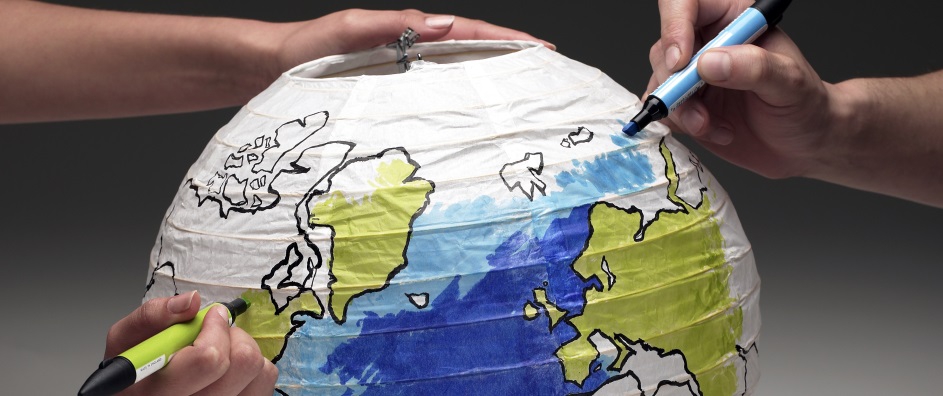
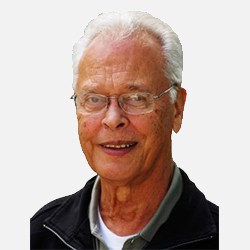
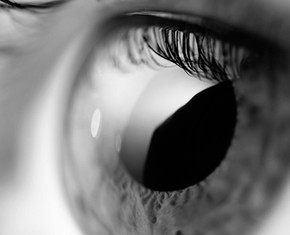
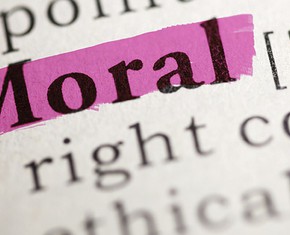










Comments
Sign in or create an account
Continue with Googleor